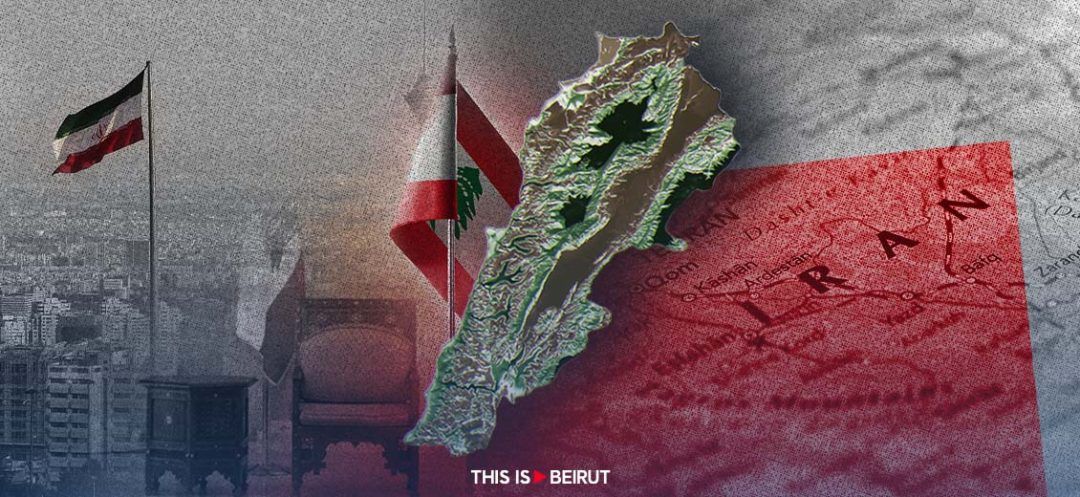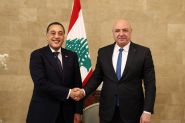
Persistence is a key element in successful diplomacy - persistence in the face of adversity, persistence in applying pressure, and persistence in standing by allies and friends. That quality is distinct from Freud's definition of insanity, that is, doing the same thing over and over again and expecting a different result. In the 1990s, sometime before his twenty-ninth fruitless trip to Syria in four years, Secretary of State Warren Christopher should have asked himself if his was a mission of persistence or insanity.
As the admirable diplomats representing the well-meaning international Quint -- America, Egypt, France, Qatar, and Saudi Arabia -- ponder their next move in connection with the stalemate over the Lebanese presidential election, they will do well to consider some of the essential qualities of their profession. First and foremost, diplomacy requires the backdrop of an obvious potential exercise of power or influence to remove obstacles. Without that implicit or explicit threat, diplomacy rarely makes a positive difference since obstacles don't seem to go away on their own. Second, the time for showy meetings in diplomacy is usually when something has been achieved, not when it hasn't. Until then, the boring but essential labor of quiet diplomacy behind closed doors is more likely to produce opportunities than diplomacy by press event. Ceaseless, public diplomatic activity without results signals to all concerned impotence and, over time, irrelevance. Third, timing can be everything.
Until the power equation in the Middle East settles, there will be no breakthroughs on the Lebanese presidency. Until the war between Iranian proxies and Israel shows signs of ending -- whoever comes out on top -- the Lebanese players blocking the presidential election will remain unmoved. Uncertainty about the future power balance in the region translates into local paralysis in Lebanon. Moreover, it is hardly in Hezbollah's interest to make concessions on the presidency when Iran and its unvanquished proxies can continue to threaten to use violence with impunity. Since the members of the Quint show no stomach to take on Iran or Hezbollah, it is hard to understand how more diplomatic conversations among or with them are going to impress anyone. On the contrary, they risk exposing a certain detachment from the reality of power politics in the region -- from realpolitik.
Instead, it may be time for a pause in this current exercise in futility. The presidential vacancy is a major problem, and the members of the Quint are right to be concerned by how its continuance is eroding what remains of Lebanese sovereignty and the state. The absence of a president impedes basic reforms needed to salvage the Lebanese economy. Lebanon's descent into a dollarized, black market world is a danger to us all, creating an ideal climate for terrorist financing, money laundering, and other evils. We should persist in demanding something better, including a presidential election. But continuing specific Quint tactics that show no hope of unblocking the election just aggravates the problem and discredits the Quint.
Instead, the Quint should bear in mind the importance of timing in diplomacy. While Israel battles the proxies around it, the Quint and like-minded Lebanese should be developing quietly a strategy for addressing Lebanon's problems once the conflict settles. Of course, the military conflict mustn't end in a draw, but with a reversal of Iran's influence and its ability to project power throughout the Middle East, including the Levant. The battleground reality is such that we are far from that outcome, so sadly a period of continued war is likely. But when the Gaza conflict winds down, inevitable attention will be cast on south Lebanon. Without a credible international plan to resume the implementation of UNSCR 1701 -- this time for real, and starting with Hezbollah's withdrawal from the border region -- Israeli leaders will debate their other options. Pressure to mount a major offensive against Hezbollah will be strong, despite the lessons of the 2006 war and the far more dangerous level of sophisticated weaponry available to both sides today.
Trying to secure the election of a president while these issues are in play can only work to the advantage of Iran and Hezbollah. It gives them one more bargaining chip -- the presidency. America and its allies should be as firm, patient, and nimble as their Middle Eastern foes. If the Lebanese can mount a democratic election at any time, America should support the outcome. But until Hezbollah and Iran encounter regional reversals, they will continue to dominate the electoral process to the disadvantage of true democrats. Only when the 2023-24 war ends, and serious pressure is applied toward implementation of 1701 as part of a regional settlement, can the Quint expect to exercise real leverage -- and get real results -- in Lebanon. That will be the moment to launch a serious initiative for a rapid process to elect a president in accordance with Lebanon's constitution. Until the basic regional power equation shifts against Iran, any diplomacy on the presidency will be either empty theater or -- far worse -- the beginning of a bargaining process in which Iran has too many chips. This is a time for patience until a regional shift against Iran creates the right time and context to counter Hezbollah's lock on the Lebanese and the presidency.
Read more





Comments